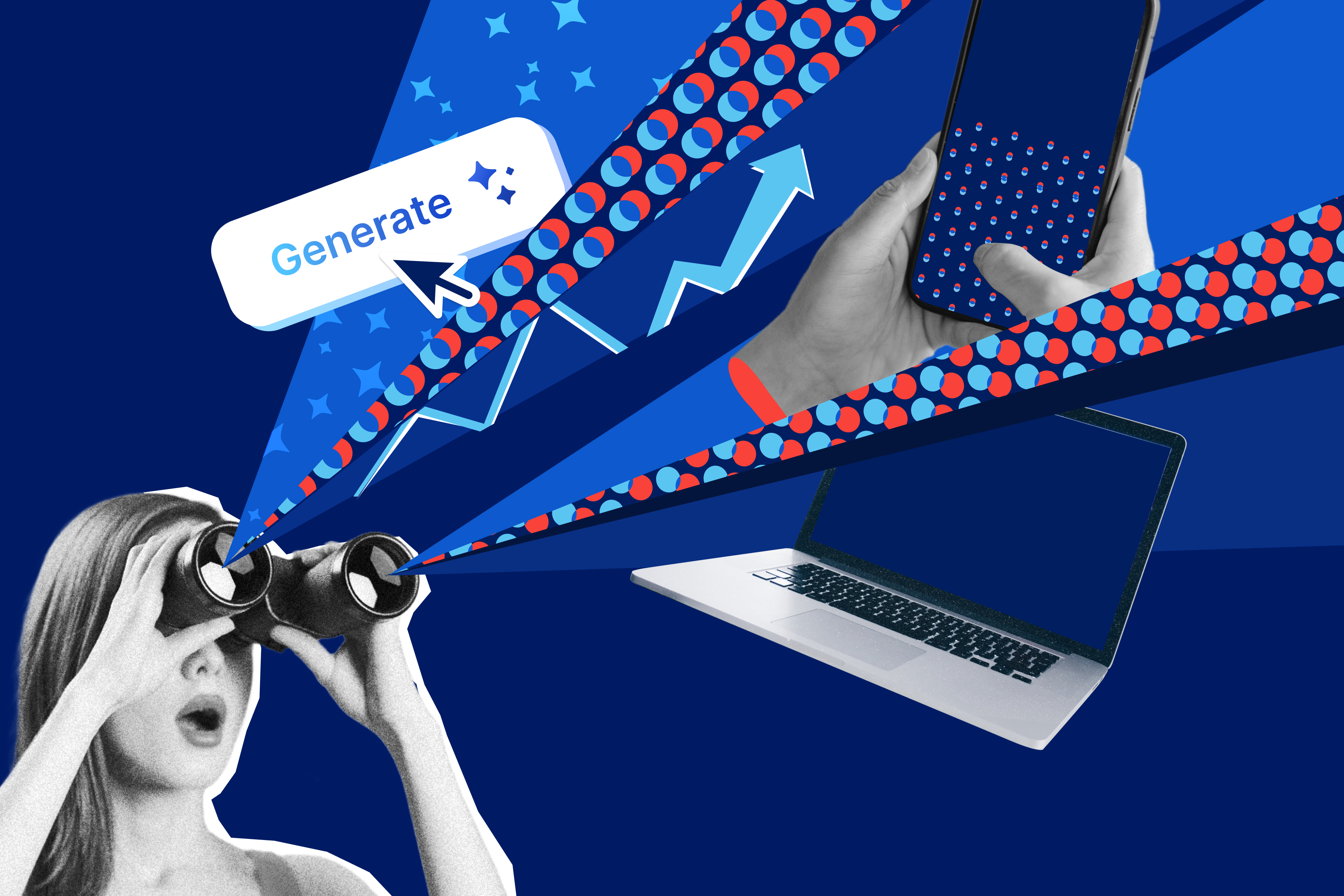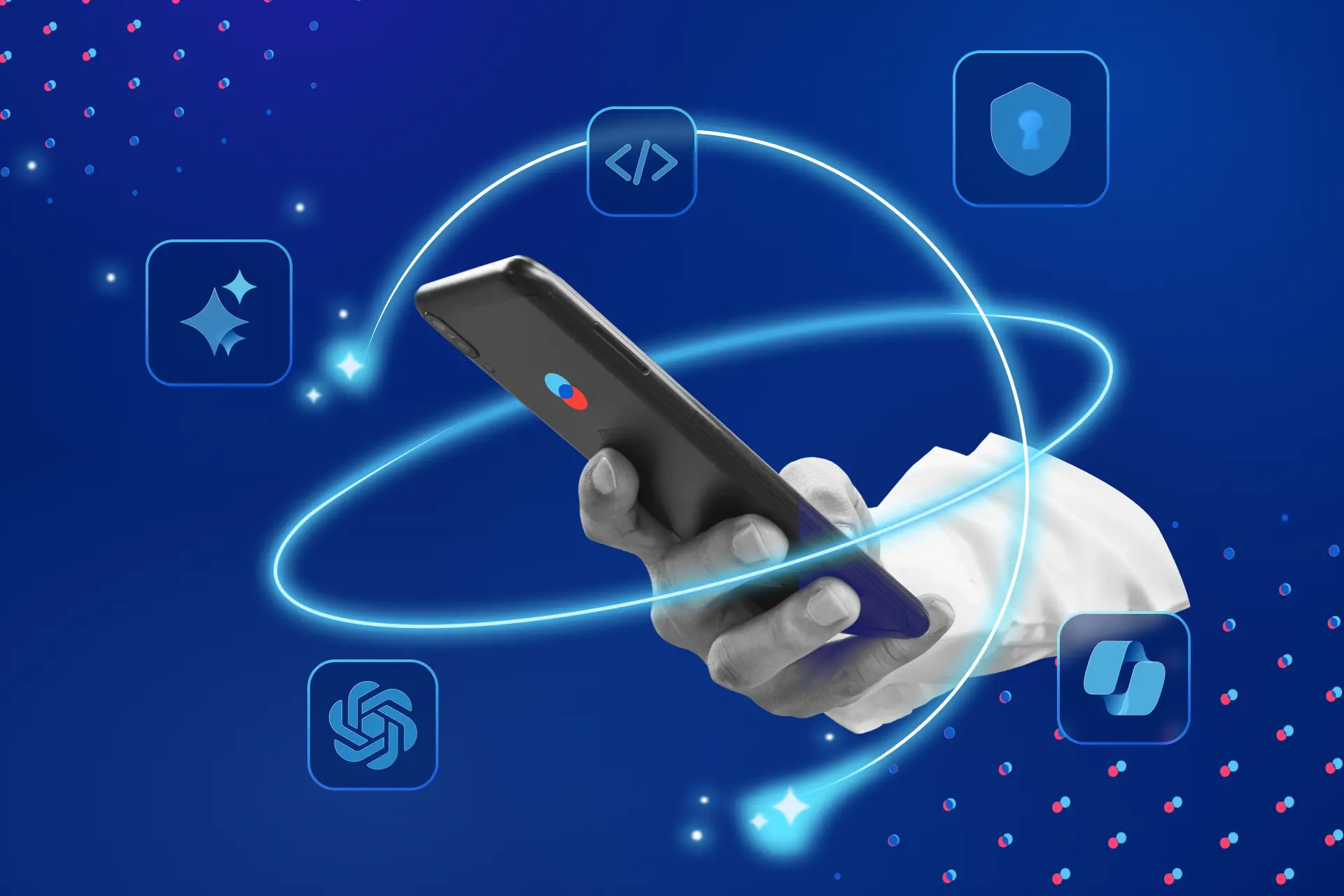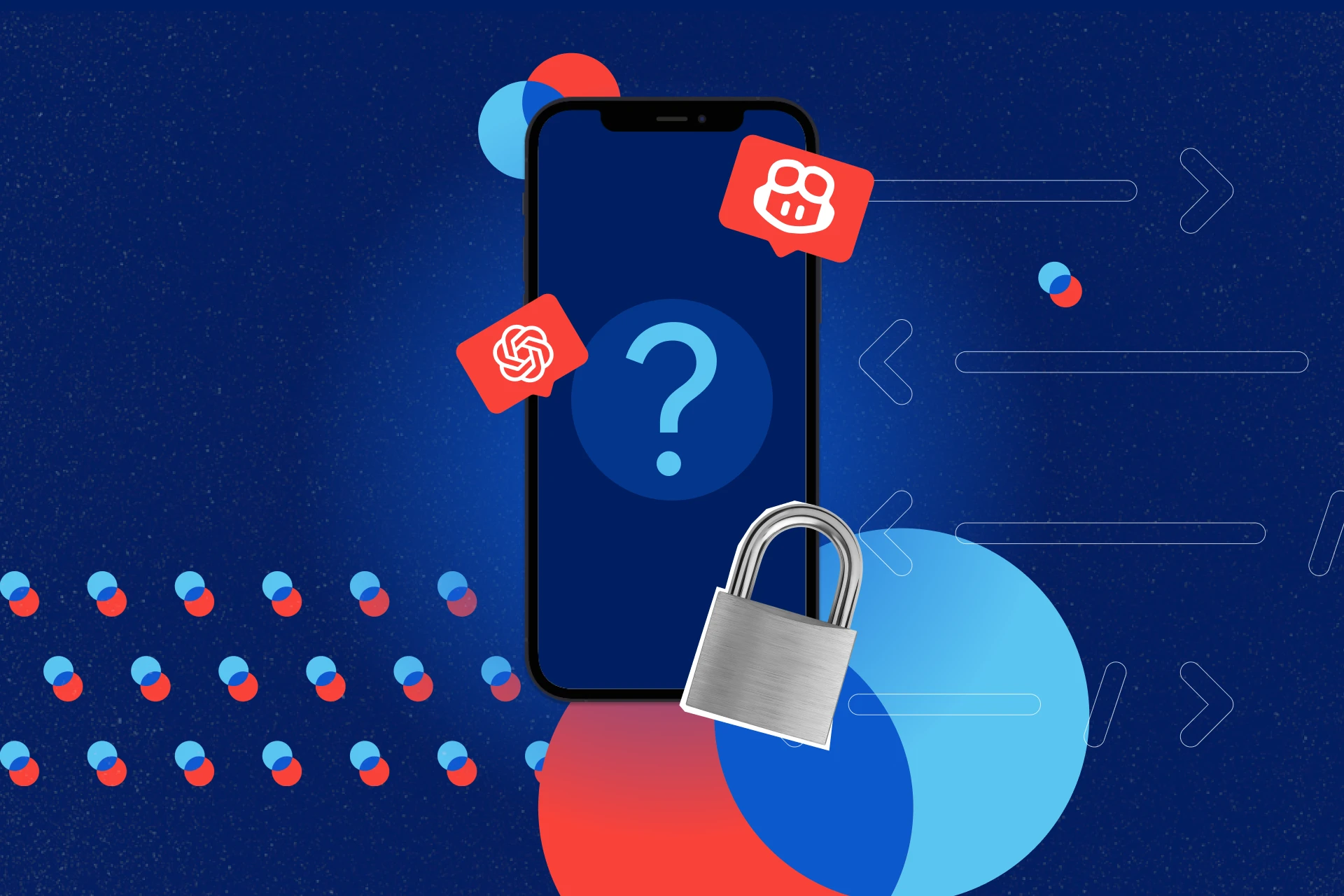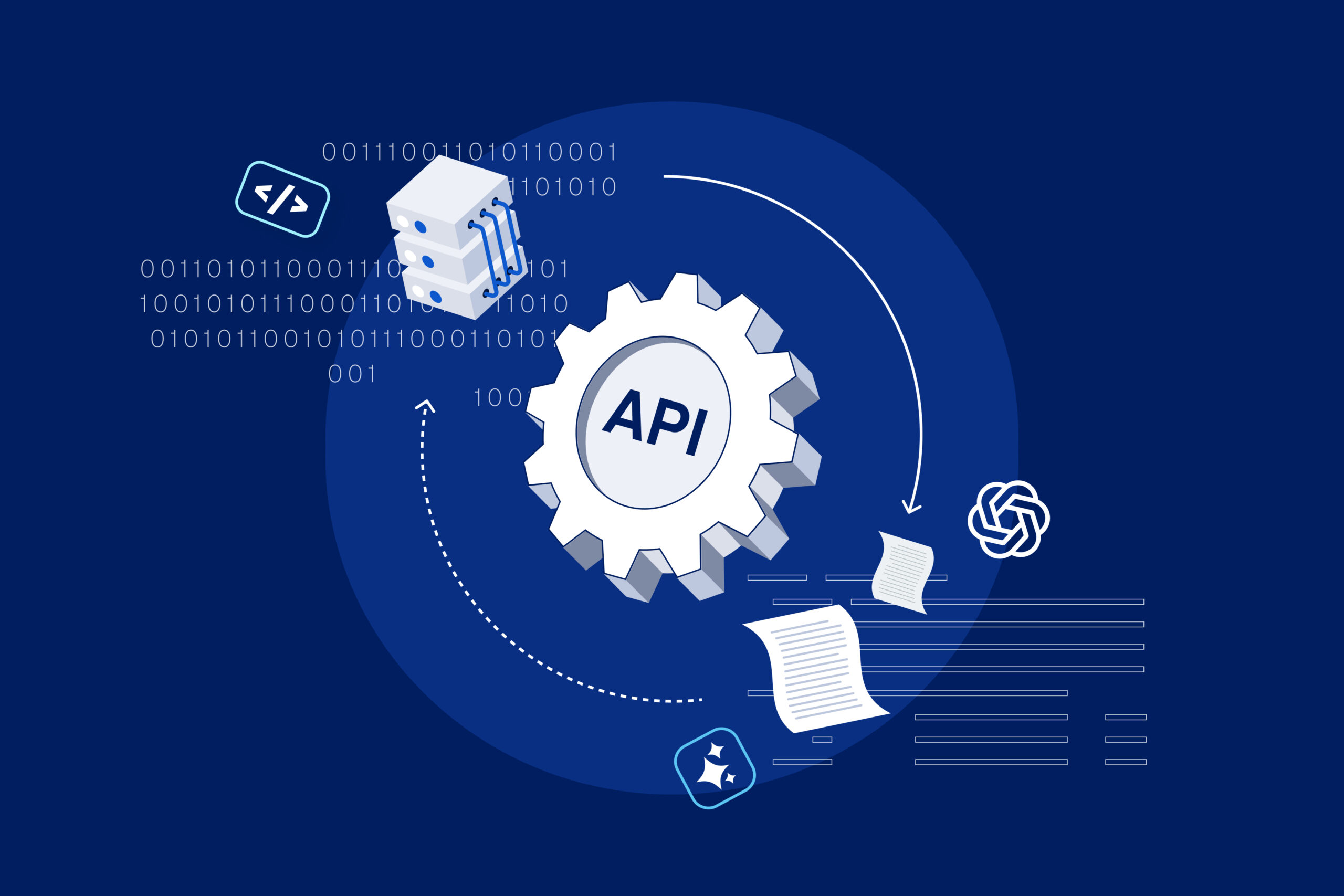2025 has barely begun, yet artificial intelligence (AI), mobile, and web technologies are converging more than ever, redefining both user experiences and business models. Here are the seven trends nventive is closely monitoring as they shape the future of digital technology.
1. AI: From Bonus Feature to Business Necessity
What was once a luxury reserved for major players has now become an essential standard for all businesses. This may seem obvious, but it’s a reminder that your competitors are moving forward—any delay could become a competitive disadvantage
Platforms like Azure AI Foundry, Amazon SageMaker Canvas, and Google Vertex AI are making AI integration into business processes more accessible, allowing companies of all sizes to leverage these tools.
Why is it essential? Increased productivity, predictive analytics, and personalized customer interactions are the pillars of a strong business strategy in 2025.
2. The Rise of BYOAI Among Employees
Microsoft estimates that over 75% of employees will use generative AI daily in 2025. The Bring Your Own AI (BYOAI) trend is already transforming workplaces. If you’re using AI tools like ChatGPT or DALL·E, chances are your employees are too. These tools assist with writing, analysis, and content creation, and they have already become widespread—sometimes even integrated into workflows without official approval.
This is a key consideration when developing AI-integrated solutions. “This can create a knowledge gap between employees who know how to use these tools and those who don’t. Their level of expertise affects their expectations and adoption of the solution,” explains David A. Hamel, VP Strategy, CX & Design at nventive
One of the key challenges with an unregulated BYOAI approach is data security. Companies must establish clear policies to manage the use of these tools and fully leverage their advantages.
3. A Personal Assistant in the Palm of Your Hand
Smartphones are becoming the central hub for intelligent assistants, capable of predicting user needs based on contextual data. Personalized notifications and improved predictive capabilities are transforming user experiences and shaping daily interactions.
We’re watching closely how general AI models like ChatGPT and Copilot will process real-time data from service providers—such as flight schedules, restaurant availability, movie times, and store inventories. Once fully integrated, this will mark a significant shift in how users interact with digital services.
Editor’s Note: At the time of writing, OpenAI had just announced the launch of Operator—an AI agent designed to perform online tasks on behalf of users. This tool can plan vacations, book restaurants, and manage shopping, marking a major milestone in the race to develop ever more advanced AI assistants.

4. The Emergence of Specialized Assistants
In professional settings, a new wave of AI-powered assistants is emerging. Tools like Microsoft Copilot and Einstein GPT streamline complex tasks in specialized domains, offering real-time recommendations and automating processes.
"Employees will increasingly rely on these productivity-enhancing tools, which allow them to leverage data more effectively. Enterprise digital solutions must adapt to offer these experiences if they want to remain competitive against major platforms."
Innovation is taking another leap forward with the emergence of Agentic AI, a new type of autonomous agent that goes beyond simple text-based interactions. For example, in software development, an AI agent could not only write code but also generate a web page from a description, deploy it, validate its visual rendering and interactions, and automatically make necessary adjustments with minimal human intervention.
The same principle applies to cybersecurity, where AI agents could detect anomalies or potential attacks and proactively block them before they cause harm.
5. Seamless Mobile and Web Experiences
Progressive Web Apps (PWAs) combine the capabilities of mobile apps with the accessibility of the web. In 2025, users will expect even smoother, more optimized cross-device experiences.
In some cases, PWAs remain a strong web development option, offering app-like experiences directly in a browser at a lower cost. AI will play an increasing role in personalizing user experiences and enhancing interactions within these platforms.
6. The Importance of Transparency
More than ever, transparency in the use of artificial intelligence is a growing expectation. Users want to know when AI is involved in the content they consume and understand the foundations of AI-driven predictions. Companies that embrace this transparency not only build trust but also meet increasing ethical expectations.
Users expect AI systems to respect their data and deliver reliable results. Proactive transparency can set your company apart and strengthen customer loyalty.
Our marketing team takes this opportunity to reaffirm its commitment to content quality. While AI is a valuable tool, our writers put too much effort and passion into their work to let it take over entirely.
7. AI and Cloud for Proactive Threat Detection
Major players like Google, Microsoft, and AWS offer turnkey solutions that combine multiple technologies to enhance system security. For example, AI and cloud computing form a powerful alliance to detect and neutralize threats in real time.
When paired with the flexibility and scalability of the cloud, AI enables continuous monitoring, rapid anomaly detection, and automated responses to potential attacks. As cyber threats become increasingly sophisticated, this combination not only strengthens security but also ensures the operational resilience of your IT systems.
The opportunities created by AI, mobile, and web technologies are expanding exponentially. These cutting-edge tools are no longer optional—they are now essential to staying competitive and reaching business goals. Want to stay ahead? Schedule an audit or an exploratory workshop with our experts to build a tailored strategy aligned with your objectives.
Featured articles
The rise of conversational artificial intelligence has transformed how companies interact with customers and optimize operations. Among these technologies, ChatGPT has garnered growing interest. It…






